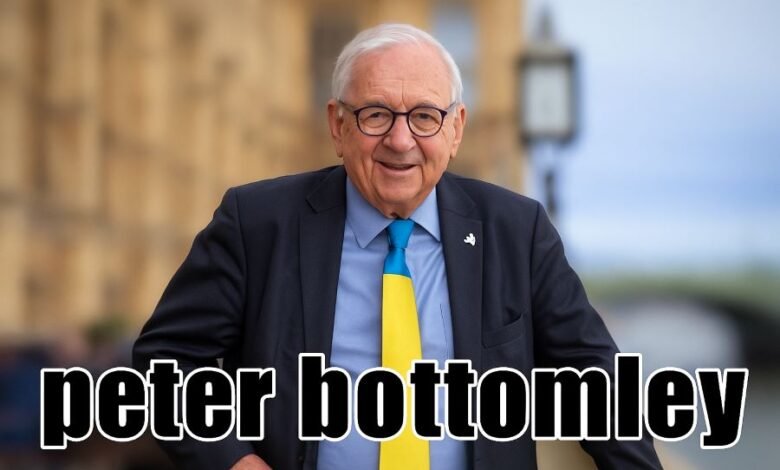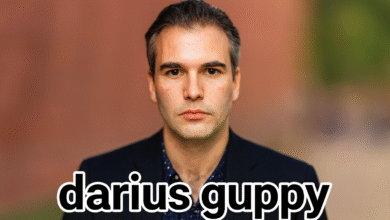Peter Bottomley: The Inspiring Journey of a Veteran Leader in British Politics
A Deep Look into the Life, Achievements, and Legacy of the Former Member of Parliament of the United Kingdom

Table of Contents
ToggleIntroduction
Sir Peter Bottomley stands as one of the most enduring and respected figures in modern British politics. With nearly five decades of continuous parliamentary service, he became a symbol of commitment, integrity, and independent thought in the House of Commons. As a Former Member of Parliament of the United Kingdom, his career reflects a lifetime dedicated to public service, social reform, and parliamentary excellence.
Throughout his journey, Peter Bottomley earned admiration for his dedication to his constituents, his balanced political stance, and his willingness to engage across party lines. His contributions to employment, transport, and Northern Ireland affairs during his ministerial years helped shape national policies that continue to influence the United Kingdom today.
His story is not only one of political longevity but also of moral courage — standing firm for fairness, public safety, and democratic inclusion.
Quick Bio
| Full Name | Sir Peter James Bottomley |
|---|---|
| Date of Birth | 30 July 1944 |
| Age (as of 2025) | 81 years |
| Birthplace | Newport, Shropshire, England |
| Nationality | British |
| Education | Westminster School; Trinity College, Cambridge (Economics) |
| Occupation | Former Member of Parliament of the United Kingdom |
| Political Party | Conservative Party |
| Spouse | Virginia Bottomley, Baroness Bottomley of Nettlestone |
| Children | Three |
| Honour | Knighted in 2011 for public service |
Peter Bottomley’s Early Life and Education
Born on 30 July 1944 in Newport, Shropshire, Peter Bottomley’s upbringing was shaped by a strong sense of service and education. His father, Sir James Bottomley, served as a British diplomat, while his mother, Barbara Bottomley, worked as a social worker — both instilling in him a deep respect for civic duty.
Peter’s early education took him across several schools, including a period in Washington D.C., reflecting his family’s international background. He later attended Westminster School, one of England’s leading academic institutions, where he developed an interest in social issues and leadership.
He went on to study Economics at Trinity College, Cambridge, under the supervision of James Mirrlees, who later became a Nobel Prize-winning economist. His university years provided him with the intellectual foundation for his lifelong focus on employment, industry, and economic fairness.
Start of Career and Entry into Politics
Before entering Parliament, Peter Bottomley had a remarkably grounded start. He worked as a lorry driver, joined the Transport and General Workers’ Union, and later transitioned into industrial sales and relations. These experiences gave him first-hand insight into the realities of working-class life, shaping his understanding of labor and fairness.
In 1972, he joined the Conservative Party, believing in the values of responsibility, opportunity, and social justice. He first stood for election in 1974 but succeeded a year later, winning the Woolwich West by-election in 1975. That victory marked the beginning of one of the longest parliamentary careers in British history.
Political Career and Parliamentary Achievements
Service as Member of Parliament
Peter Bottomley represented three constituencies during his time in Parliament:
-
Woolwich West (1975–1983)
-
Eltham (1983–1997)
-
Worthing West (1997–2024)
For nearly five decades, he maintained a reputation for accessibility and compassion toward his constituents. His long service made him Father of the House of Commons in 2019, recognizing him as the longest continuously serving MP in the United Kingdom.
Ministerial Roles and Government Service
His government service under Prime Minister Margaret Thatcher showcased his strong administrative and reform-minded skills. He served in several junior ministerial roles:
-
Parliamentary Under-Secretary of State for Employment (1984–1986)
-
Parliamentary Under-Secretary of State for Transport (1986–1989)
-
Parliamentary Under-Secretary of State for Northern Ireland (1989–1990)
During these years, Peter Bottomley worked on issues of workplace reform, road safety, and industrial policy. His work in Northern Ireland came during a complex period in British politics, requiring balance, patience, and diplomacy.
Advocacy and Political Vision
Sir Peter Bottomley was known for his moderate and thoughtful approach within the Conservative Party. He often prioritized people over party politics, engaging with members across the aisle to achieve common goals.
He was a vocal advocate for youth empowerment, supporting the campaign to lower the voting age to 16, and participated actively in All-Party Parliamentary Groups (APPGs) on topics like transport safety, contaminated blood victims, and ethical governance.
Even as a Conservative, he was respected by opposition MPs for his balanced views, moral integrity, and commitment to fair representation.
Honours and Recognition
In 2011, Peter Bottomley was knighted for his exceptional public service to Parliament and his constituents. This recognition reflected his enduring contributions to the United Kingdom’s political life, his consistency in public duty, and his embodiment of democratic values.
Throughout his career, he received wide respect for his humility, dedication, and sense of justice. He often reminded colleagues that politics should remain “about people, not positions.”
Personal Life
Peter Bottomley married Virginia Bottomley in 1967, a distinguished public servant who later became Secretary of State for Health and was elevated to the House of Lords as Baroness Bottomley of Nettlestone. The couple shares three children and remains an influential partnership in British public life.
Outside politics, Sir Peter has been involved in church and community work. His calm demeanor and consistent moral compass made him a figure of trust and empathy among his peers.
Legacy and Influence
Sir Peter Bottomley’s legacy extends beyond his political titles. As a Former Member of Parliament of the United Kingdom, his impact is measured not only in years served but in the principles he upheld. He represented the values of integrity, inclusion, and compassion — qualities sometimes rare in politics.
His long service bridged generations of Parliamentarians, from the 1970s to the modern digital age. As Father of the House, he symbolized stability, respect for parliamentary tradition, and dedication to public service. His departure in 2024 marked the end of an era in British politics.
Conclusion
Sir Peter Bottomley’s story is one of purpose, persistence, and principle. From humble beginnings to the highest levels of parliamentary influence, he demonstrated that leadership is not about power, but about service. His calm strength, moral integrity, and willingness to challenge injustice earned him respect across the political spectrum.
As a Former Member of Parliament of the United Kingdom, Peter Bottomley leaves behind a legacy that future generations of politicians can learn from — a legacy rooted in compassion, fairness, and devotion to public life.
FAQs
1. Who is Peter Bottomley?
Sir Peter Bottomley is a British politician and former Member of Parliament who served from 1975 to 2024. He held various ministerial roles and became Father of the House of Commons in 2019.
2. What is Peter Bottomley’s educational background?
He studied Economics at Trinity College, Cambridge, after completing his education at Westminster School.
3. What were Peter Bottomley’s main contributions to politics?
He contributed to employment reform, transport safety, and youth enfranchisement. He also worked in Northern Ireland during a crucial period of peacebuilding.
4. When was Peter Bottomley knighted?
He was knighted in the 2011 New Year Honours for his decades of public service.
5. What is Peter Bottomley’s legacy?
His nearly 49-year career represents honesty, dedication, and independent leadership in British politics — setting a standard for parliamentary integrity.



